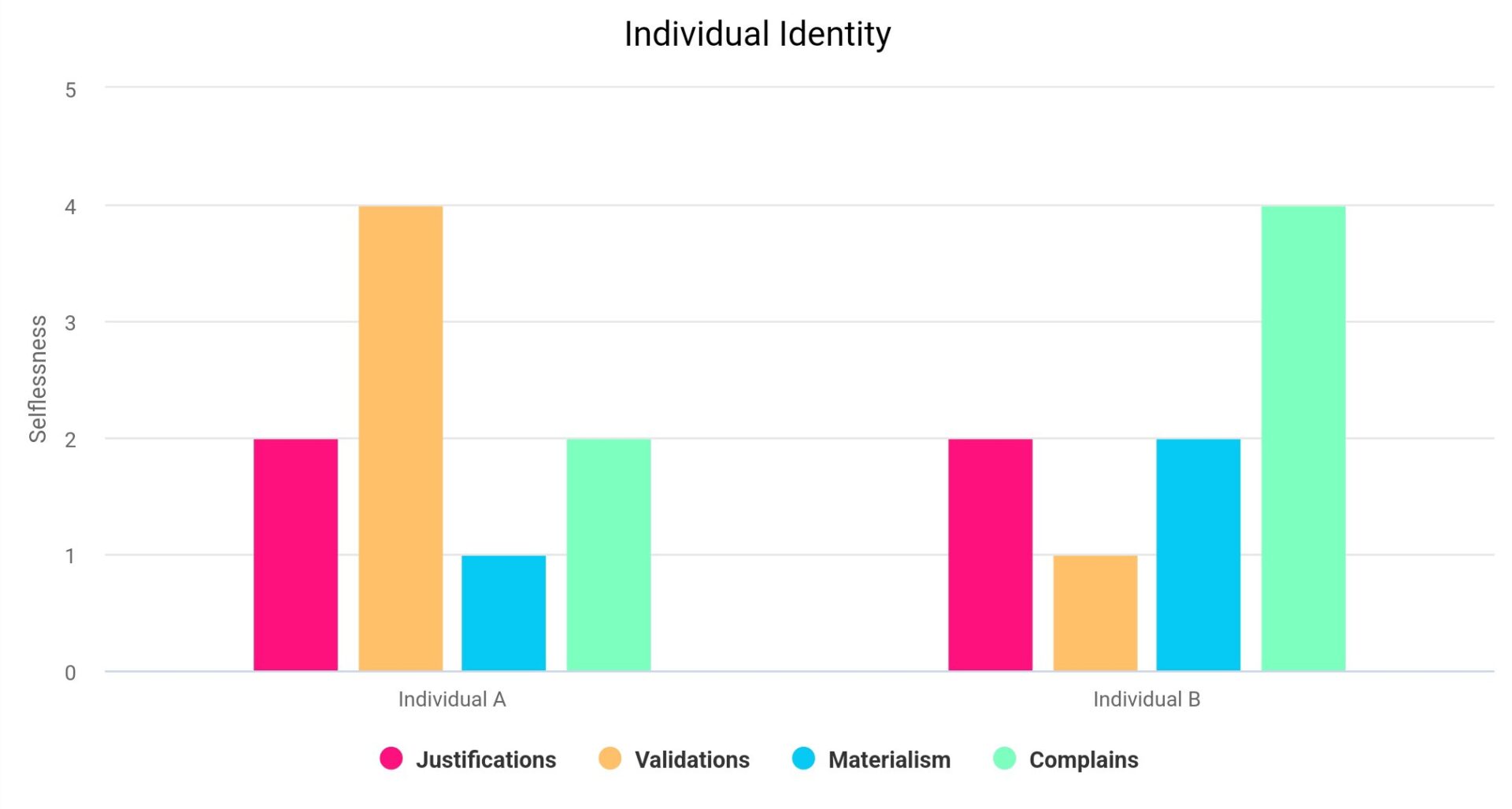What defines an Individual in the society?
There are indefinite ways in which an individual can be assessed as to who he is in the society. One of the perspectives to view it is from the angle of how much the individual is giving back to the society. How much he thinks about doing good for himself as opposed to how much he thinks about the larger good.
I would like to call this the ‘selflessness scale’. Selfishness to the extent of the thoughts of self alone is the centre of the circle, with the extreme periphery being selfless thoughts of the greater good for others and the society overall.
However, each of us are selfish in concern to some of our features and selfless in regards to others at different scales. This is what makes us truly us. I could be selfish when it comes to sharing food and at the same time be selfless in helping old people cross the roads.
Of all the features humans have, some of the starkly defining features we display are:
-
Justifying our actions,
-
Seeking validation for who we are,
-
Wanting comfort through materialism, and
-
Complaining about things that bother us.
Every human has to have the above traits. It is just human to be that way.
“I have everything and I seek nothing said no one!”
Of the above 4 universal features a human has, an individual could enact them with varying degrees of selfishness/selflessness. No two individuals are alike in the permutations and combinations of their selfishness concerning the 4 features.
An individual could be rated from 1 to 5 based on how selfishly he is thinking about himself versus how selflessly he is thinking about others. (Read: MY PET PROJECT).

Notice how both individual A and individual B score a value of 9 cumulatively. Yet they are different in regards to how much validation they seek for their actions and how much they complain about their situations.
I asked my uncle the above set of questions to decipher how he would scale up the selflessness ladder. I ended up realising more than I already knew. At the end of the day, however, his individuality and uniqueness can not be reduced to a set of 4 numbers. Nevertheless, these numbers can hopefully give leads on a certain consensus that may be applicable across various demographics, ages, professions, gender, traditions, and cultural differences.